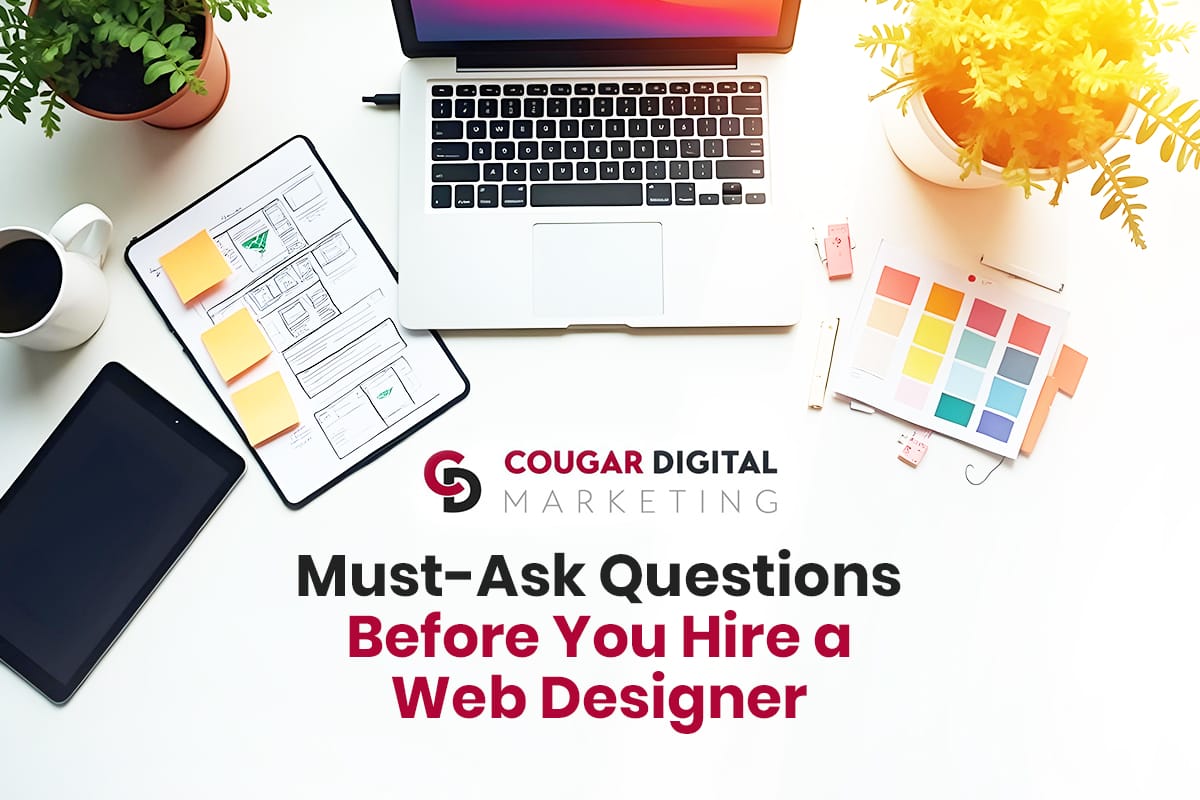Choosing the right web designer can feel overwhelming. Whether you’re leading a business, a nonprofit, or launching a personal project, you want a website that delivers results—and you want the hiring process to be straightforward. Yet, the range of options, promises, and price tags can leave anyone second-guessing their choice.
The best way to cut through confusion is to ask direct, smart questions. This isn’t about appearances or buzzwords—it’s about finding someone who gets what you want, communicates well, and delivers a site that meets your needs. Skip these questions, and you could end up with a website that doesn’t work for you, a drawn-out timeline, or extra fees you didn’t expect.
This guide gives you the essential questions to ask before hiring a web designer. Use it as your reference to stay focused, identify who’s the real deal, and make sure your next website is set up for ongoing success.
Why Asking the Right Questions Matters
Your website is one of the first places people learn about you. It should inform, build trust, and support your goals. A decent-looking site is just the start—what counts is if it actually works for you. Direct questions get you past surface-level details and reveal if a designer has the skills and attitude you need.
Here’s what good questions help you avoid and achieve:
- Avoiding Pitfalls: Direct questions expose risks early—missed deadlines, vague pricing, or sites that don’t actually work for your users.
- Finding the Right Match: A website project only succeeds when you and your designer mesh well. Clear questions reveal if your work styles and expectations line up.
- Setting the Stage: Web design is an investment. Good questions make sure your site is ready for growth and change—so you aren’t rebuilding again in a year.
Let’s get into what to ask, why it matters, and what to watch for in the answers.
Questions About Their Process & Communication
Knowing how a web designer works, and if they’ll keep you updated, makes projects go smoothly from start to finish.
“Can you walk me through your typical web design process?”
Why ask: You want more than guesswork. A designer with a clear process is organized and professional. You should know how they’ll move from ideas to launch, what’s expected of you, and when key steps happen.
What to listen for: Look for someone who explains each project phase: research, planning, design, development, testing, launch, and what happens afterward. They should define your role at each stage and set realistic timelines. If their process sounds improvised or unclear, that’s a warning sign.
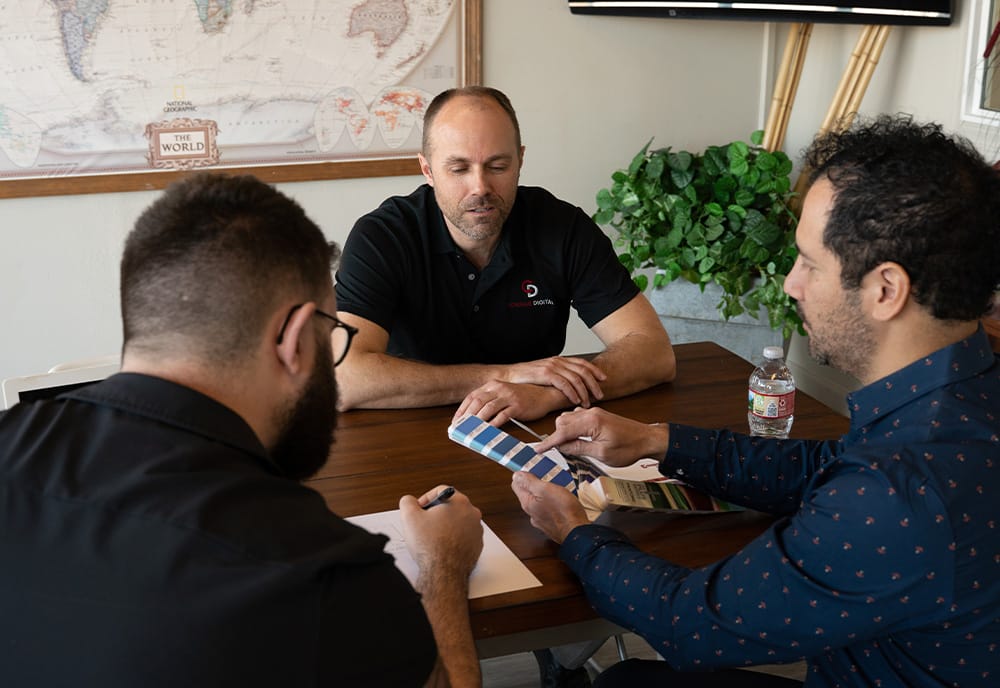
“How do you prefer to communicate during the project?”
Why ask: Consistent updates and quick answers make the difference between a smooth project and a headache. Figure out if their communication style matches yours.
What to listen for: Do they schedule regular check-ins? Use project management tools? Are they prompt and proactive with updates? Make sure their approach works for you—if not, it’s likely to be a struggle.
“What’s your approach to client feedback and revisions?”
Why ask: Feedback and changes are normal parts of web design. The key is finding out how they handle it so things don’t spiral out of control.
What to listen for: They should explain how feedback is collected (like using annotation tools or scheduled reviews), how many revisions are included, and what happens if you need more changes. Clarity here prevents arguments and budget surprises.
“Who will be my main point of contact?”
Why ask: You need to know who’s responsible for your project. Bouncing between contacts slows everything down.
What to listen for: Ideally, you get a single point of contact who knows your project and can answer questions promptly. If you’ll work with a team, make sure someone coordinates the communication.
Like this article?
There's more where that came from.
Questions About Their Experience & Expertise
Past projects show what a designer is capable of. These questions clarify if they’re ready for your unique needs.
“What kind of experience do you have with projects like mine?”
Why ask: Industry-specific experience helps a designer anticipate your needs, even if you’re not sure what to ask for. It saves you time and results in a more relevant site.
What to listen for: Look for specific stories about similar clients or industries. If they haven’t worked in your field, see if they ask good questions to learn about your audience and goals.
“Can I see examples of your recent work?”
Why ask: Fresh work reflects their current skills. Trends change quickly, so you want to see what they’ve done lately.
What to listen for: Go beyond screenshots—ask to click through live sites. Pay attention to mobile usability, loading times, navigation, and clarity. Ask about their involvement with each project and the results achieved.
“Do you outsource any of your work?”
Why ask: It helps to know who’s actually building your site. Outsourcing isn’t always negative, but you want accountability and a clear process.
What to listen for: Straight answers about outsourcing. If others are involved, ask how they’re managed and who you’ll deal with day-to-day. Avoid anyone uncomfortable discussing their team.
“How do you stay current with web design trends and technologies?”
Why ask: The web evolves fast. You want someone who learns continuously so your site won’t be outdated the moment it launches.
What to listen for: They should mention ongoing learning—following leaders in the field, experimenting with new techniques, or attending relevant workshops. Someone eager to grow brings better ideas to your project.
Not sure what to spend on marketing?
Find out in 30 seconds.
Plug in your numbers, get a smart budget instantly.
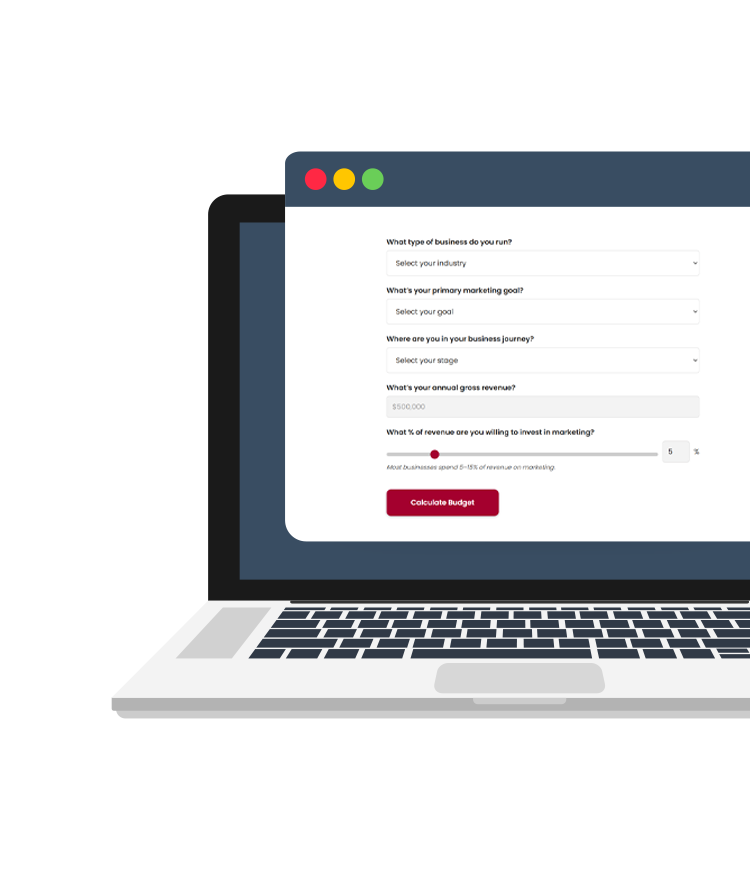
...because 'just throw money at it' isn't a marketing strategy.
Questions About Design & Functionality
This is where you clarify what your site will actually look like, how it works, and how it will stand out.
“Do you use templates, or do you create custom designs?”
Why ask: Templates can limit flexibility, but custom website design may take longer and cost more. Decide what matters most for your needs.
What to listen for: If they use templates, ask about how deeply they’ll customize these to reflect your brand. If they prefer custom designs, check their process for understanding your style and functionality preferences.
“How do you approach user experience and user interface design?”
Why ask: It’s not just about looks. If visitors can’t navigate your site or quickly find information, they’ll leave.
What to listen for: Designers should ask about your audience, plan for intuitive navigation, and test prototypes before launch. They should be able to explain their choices for making your site simple and effective to use.
“Will the website be mobile-friendly and responsive?”
Why ask: Most visitors will see your site on a phone. If it doesn’t work well on mobile, you’ll lose them.
What to listen for: Make sure they commit to fully responsive design and explain how they test for compatibility across different devices.
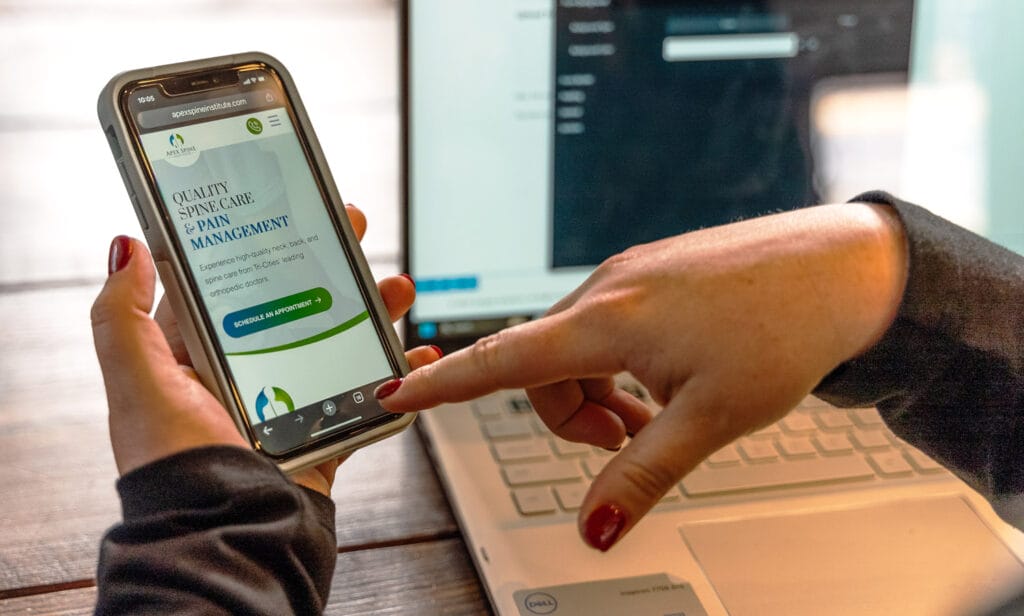
“What content management system do you use, and why?”
Why ask: Your ability to update content later depends on the CMS the designer uses.
What to listen for: Listen for a clear explanation of their preferred CMS—why they use it, how it fits your needs, and what training or support they’ll provide.
“How will you ensure the website fits my brand and achieves my business goals?”
Why ask: You want your site to feel like you, and to work toward your objectives right from the start.
What to listen for: The designer should describe a discovery phase where they learn about your brand, target audience, and goals. They should be able to explain how these insights influence design and content choices.
Questions About SEO & Digital Marketing
A great website is worthless if people can’t find it. These questions clarify if the designer understands broader digital strategy.
“What’s your approach to SEO?”
Why ask: Basic search engine optimization work should be built in. You shouldn’t have to fix visibility problems after launch.
What to listen for: Look for discussion of technical factors (like site speed and structure), on-page basics (like quality content and headings), and how these will be integrated from the start.
“How do you factor AI into your web design and SEO strategies?”
Why ask: The digital world is changing fast. AI now influences both content and search engine algorithms.
What to listen for: Responses may vary, but a good answer notes the impact of AI tools—maybe using them for content optimization or enhanced user experience. It shows a designer who’s paying attention to what’s next.
“Can you integrate the website with other marketing tools?”
Why ask: Your website should connect with the systems you already use—email, analytics, or CRM.
What to listen for: Look for real experience with the integrations you need. Ask how they’ll handle connecting your tools securely and reliably.
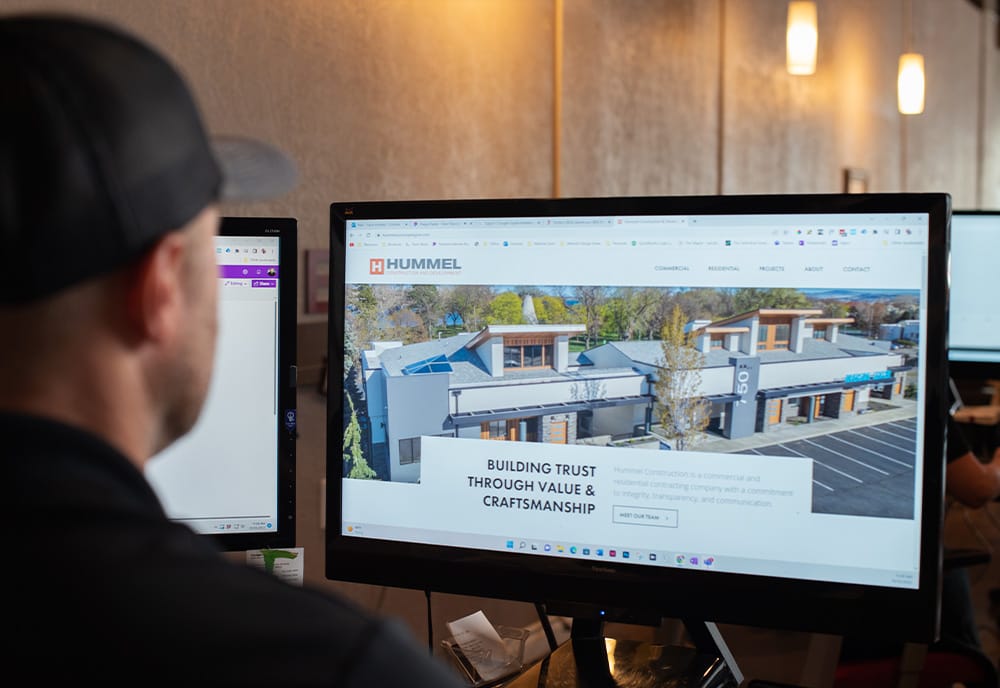
“Who handles content creation—do you help, or is that my responsibility?”
Why ask: Launching a website requires more than design. If you need help with copy or images, clarify what’s included now.
What to listen for: Designers should be clear on what they offer. If they don’t provide content services, ask for referral options or clear guidelines if you’ll provide the content yourself.
Questions About Cost & Ownership
To avoid misunderstandings, get clarity on price and legal rights from the start.
“What’s included in your pricing, and are there any extra costs I should expect?”
Why ask: You don’t want surprises. Transparent pricing upfront keeps things fair.
What to listen for: Breakdowns of what’s covered (design, development, stock images, maintenance) and clear details on what costs extra.
“What are your payment terms and schedule?”
Why ask: Set expectations to avoid cash flow or deadline issues later.
What to listen for: They should explain deposit requirements and when future payments are due—ideally tied to milestones, not vague promises.
“Who owns the website and all related files after launch?”
Why ask: You should have full control over your digital property when the project is done.
What to listen for: The agreement should state you own everything—the design, code, and content—once paid in full. You shouldn’t be locked in or dependent on them for future updates.
“How do you handle changes or if the project needs to expand?”
Why ask: Sometimes needs shift. Get clarity in writing for how additional work or costs are approved.
What to listen for: Look for a formal process where any additions or changes are quoted and approved by you before extra work begins.
Questions About Post-Launch Support & Maintenance
Websites need care after launch, and you need to know what support you’ll get.
“What support do you offer after launch?”
Why ask: Bugs, questions, or unexpected issues are common. Know what follow-up help is included.
What to listen for: Ask about initial support windows, response times, and options for ongoing help or maintenance plans.
“Do you handle routine maintenance and security?”
Why ask: Regular updates are needed to keep your site secure and running well.
What to listen for: See if they offer packages for software updates, backups, or monitoring. If not, ask who they recommend for these services.
“Will you show me how to update the site myself?”
Why ask: You shouldn’t need to call for every tweak or blog post. Some basic training empowers you to manage content easily.
What to listen for: Good designers will show you the ropes—either through a quick training session, short videos, or a simple guide.
Gut Check Questions
Don’t overlook the intangibles. These final questions gauge whether you’re working with someone who understands your situation and will be a valuable partner.
“What do you see as my biggest challenges online?”
Why ask: This shows if the designer genuinely pays attention to your needs and can think beyond visuals.
What to listen for: Look for honest feedback and thoughtful follow-up questions. If they already have ideas for improvement or spot red flags, that’s a great sign.
“Why do you think we’d work well together?”
Why ask: You’re about to collaborate. Make sure there’s a good vibe and shared understanding.
What to listen for: Listen for specifics—communication styles, approach to problem-solving, their genuine interest in your work—not just generic answers.
“Can you connect me with a few past clients?”
Why ask: Talking to other clients gives you real-life insight into how the designer works—beyond the sales pitch.
What to listen for: Reliable designers offer references quickly. Ask those references about communication, deadlines, problem-solving, and how the site has performed after launch.
How to Make Your Choice
Hiring a web designer impacts your online future. By asking these questions, you’ll get past the noise and see who’s truly right for you. Take your time, weigh the responses, and trust your judgment. Find a web designer who’s committed, reliable, and ready to support your goals, and your site will serve you well for years to come.
And of course, if you’d like our team to answer any of these questions about your project, just give us a call!
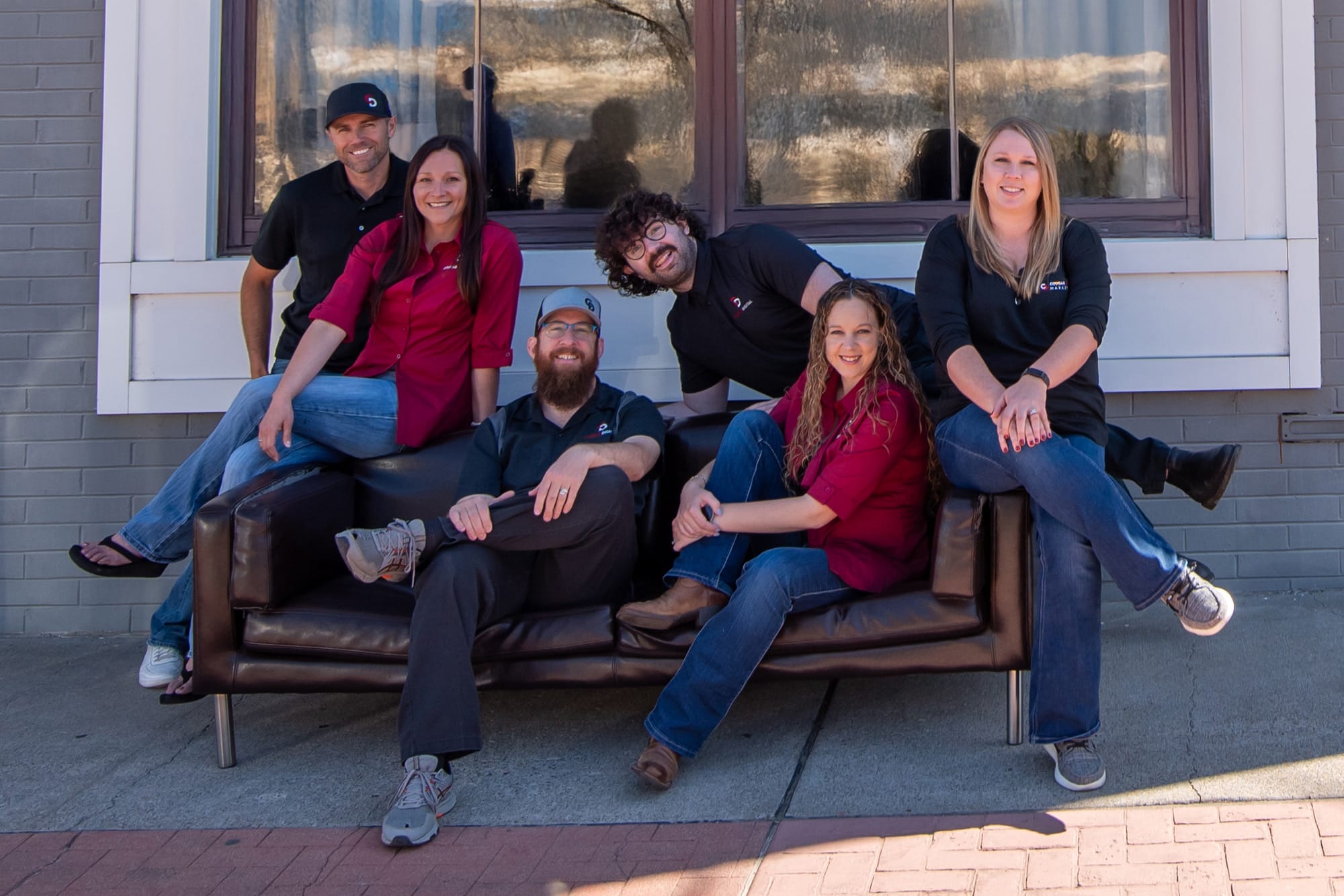
Sign up for a FREE marketing analysis & consultation!
In about 30 minutes, we'll cover your:
-
Business Goals and Challenges
-
Current Marketing Efforts
-
Target Audience and Market Insights
-
Competitor Analysis
-
Customized Growth Opportunities

